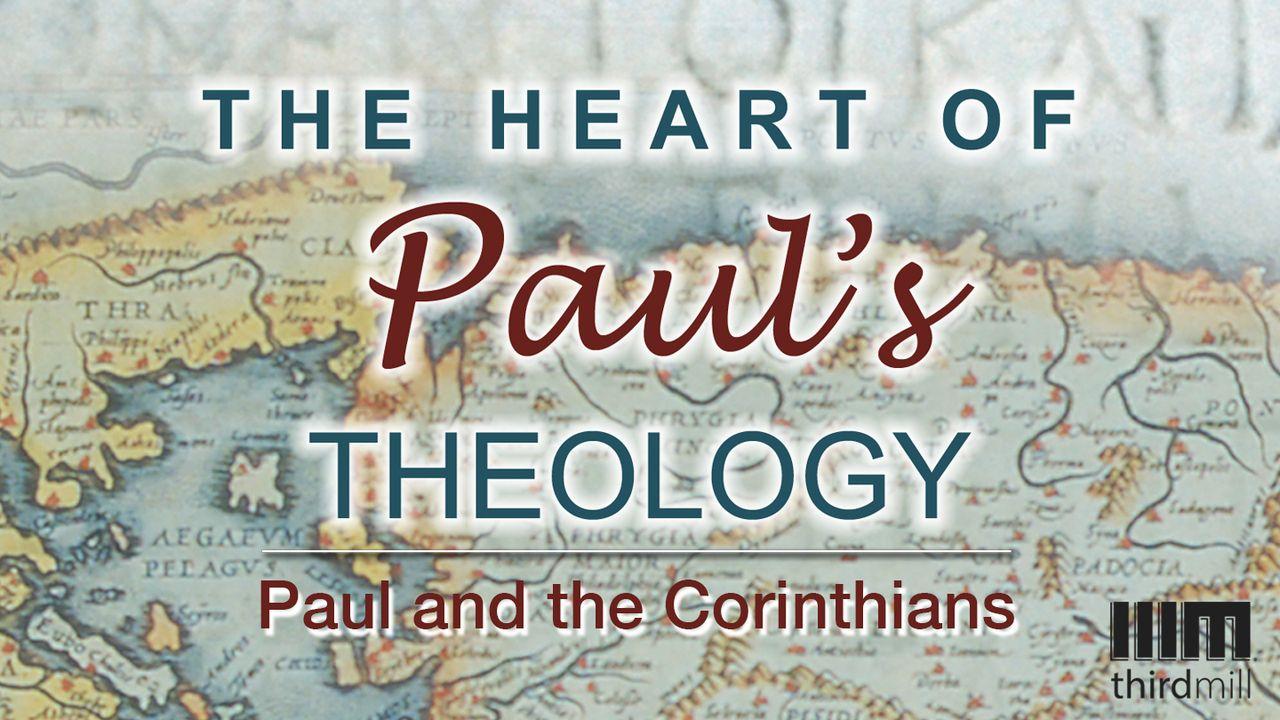The Heart Of Paul’s Theology: Paul and the CorinthiansSample

Response to Reports: 1 Corinthians 1:10–6:20
The main body consists of two large subsections: 1:10–6:20 includes Paul’s responses to reports he had received from Chloe’s household, and 7:1–16:12 contains Paul’s responses to the letter he had received from the Corinthian church. In the first of these two subsections, Paul addressed three main issues that had come to his attention through the messages from Chloe’s household: divisions within the church, immorality, and Christian associations.
As we have already seen, the Corinthian church had a number of problems that resulted in divisions. They were fragmented by loyalties to particular church leaders such as Paul, Peter, Apollos, and Jesus. They were divided against one another in lawsuits. And they had become arrogant toward the poor among them and to the poor in Jerusalem. Paul tackled this problem in a few different ways.
Paul also wrote extensively on the total ineptitude of worldly wisdom at handling spiritual matters. Evidently, the influential minority in the Corinthian church was largely composed of those whom the secular society would have respected such as the wealthy and the educated. Under their leadership the rest of the church followed suit in adhering to worldly values. For example, in 1 Corinthians 1:19-20, he wrote:
It is written: “I will destroy the wisdom of the wise; the intelligence of the intelligent I will frustrate.” Where is the wise man? Where is the scholar? Where is the philosopher of this age? Has not God made foolish the wisdom of the world?
Besides telling the Corinthians they were foolish for thinking like the world, he also let them know that they were spiritually immature. In 1 Corinthians 3:1-2, he wrote:
Brothers, I could not address you as spiritual but as worldly — mere infants in Christ. I gave you milk, not solid food, for you were not yet ready for it. Indeed, you are still not ready.
In other words, while the divisive Corinthians thought themselves superior for their wisdom and maturity, in reality, they knew little to nothing and were not even close to being qualified to lead the people of God. Their worldly values had blinded them to spiritual truth.
Paul also took the Corinthians to task for the immorality that had been reported to him. We have already mentioned the case of the man who was cohabiting with his stepmother. Paul addressed that issue in 5:1-13, but he wrote more generally about the subject in 6:12-20 where we learn that the Corinthians had apparently misappropriated the slogan, “Everything is permissible for me.” Paul responded directly to this error by qualifying the slogan in verses 12 and 13:
“Everything is permissible for me” — but not everything is beneficial. “Everything is permissible for me” — but I will not be mastered by anything… The body is not meant for sexual immorality, but for the Lord, and the Lord for the body. (1 Corinthians 6:12-13)
As we have seen, some Corinthians thought that any sexual conduct was permitted now that Jesus had come.
Now, elsewhere in chapter 6 Paul mentioned a number of sexual sins that had characterized the Corinthians prior to their coming to Christ including fornication, adultery, male and female prostitution, and homosexuality. It is possible, though not certain, that his statements about immorality were directed toward members of the Corinthian church who still engaged in these activities. In any event, the church’s toleration of the man who cohabited with his stepmother clearly demonstrated their laxity in this area.
Finally, Paul clarified some instructions he had previously given to the church concerning Christian associations. He wanted them to maintain their relationships with unbelievers in the world, but to distance themselves from gross sinners who claimed to be believers, but who brought disrepute to the people of God, such as the man who lived in a sexual relationship with his stepmother. In such cases, the Corinthian church was to practice proper church discipline, even excommunicating the offenders if necessary.
About this Plan

This reading plan explores the background to Paul's letters to the Corinthians, examines the structure and content of First and Second Corinthians, and reveals his eschatology.
More
Related Plans

Financial Discipleship – the Bible on Bribes

The Radiant Mom: 10 Days to a More Joyful, Christ-Centered Home

Forgive Them Too??

Healing the Wounds of Rejection

The Last Half Hour: When Waiting Becomes Glory

Pain to Peace: A Man's Path Past Pitfalls

Rest in God’s Love: 3 Days of Contemplative Prayer

Celebrate

Write Your Faith: 3 Days of Journaling
